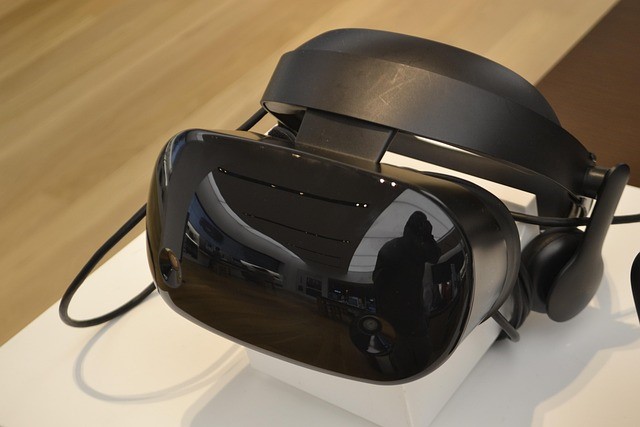Artificial intelligence, immersive experiences, and decentralized platforms are nudging entertainment into a different shape. Not everywhere at once, but the trend is fairly hard to miss. Across streaming, gaming, music, and live-ish interactive events, the line between audience and creator keeps softening. People want sharper recommendations, instant access, and a say in how things unfold, or at least the feeling of it.
Avenga reports that roughly 74% of media companies put money into AI-driven personalization in 2023, which sounds high but tracks with what platforms keep shipping. Blockchain tools quietly handle ticketing, memberships, and those exclusive fan drops that sell out in minutes. So the future seems geared toward interactivity, immersion, and user agency, fueled by fast-moving connectivity and creative tech that changes a little faster than anyone can fully process.
Contents
Immersive technologies reshape audience engagement
Augmented reality, virtual reality, and that flexible idea of a Metaverse are pulling audiences from passive viewing toward active participation. One night it is a virtual concert; another, an esports arena, a casino, or a 3D museum you wander through with friends. Simplilearn cites global AR and VR entertainment spending at about 22.5 billion dollars in 2022, and the curve appears to be pointing up.
These tools invite you inside the scene, whether that is a holographic performance or a reconstructed historical moment you can walk around. ABBA Voyage is a good example, using holography to present near-lifelike shows that feel oddly tangible despite the distance. Fashion houses are experimenting too, blending physical runways with digital stages. As realities mix, the audience feels less like spectators and more like participants, which is exciting, if occasionally disorienting in a good way.
AI and data-driven personalization accelerate innovation
Artificial intelligence runs a lot of what we see and hear now, especially recommendations. Streaming platforms lean on algorithms to nudge a movie, a song, or even a game your way, aiming to lift engagement and, realistically, reduce churn. Systems sift through viewing habits, context, demographics, small signals and bigger ones, to guess what might click next. In gaming and online casino environments, personalized offers based on past behavior are now standard, influencing not just content suggestions but also dynamic pricing, tailored game modes, and targeted bonuses.
On the production side, studios are ramping up AI-assisted tools to move faster without (hopefully) losing quality. Automated editing, voice synthesis, and synthetic assets can shorten timelines and open odd, new creative doors. Avenga suggests personalization may boost average viewing duration by up to 35%, which, if accurate, is a big lever for subscriber retention.
5G and next-generation networks unlock real-time digital worlds
High-speed 5G is making the whole thing more immediate. With multi-gigabit throughput and latency that can dip under 10 milliseconds, heavy AR or VR no longer needs a tether to feel responsive. Multiplayer cloud games work better on the go, collaborative virtual workspaces feel less laggy, and interactive streams become less of a buffering roulette. A recent Simplilearn trends report notes that about 69% of entertainment companies have prioritized 5G investments since 2022, a figure that fits with what developers keep promising.
Increased capacity also supports persistent digital spaces where lots of people can interact at once. And as platforms get more interoperable and device agnostic, you can hop from desktop to phone to headset, carrying your identity and digital goods with you, which sounds tidy but will likely be messy in practice before it smooths out.
Blockchain and digital ownership redefine user participation
Blockchain is experimenting with how fans show up and how creators get paid. Digital collectibles and NFTs, for all their hype cycles, offer verifiable ownership for music, art, in-game items, or access tokens that behave more like passes than files. Creators can launch limited editions, memberships, or interactive goodies, sharing revenue more directly, which may encourage loyalty when done thoughtfully. Vocal Media points to more than 4.8 billion dollars raised by blockchain-powered entertainment initiatives in 2023, a number that suggests there is real experimentation underway.
Smart contracts can streamline ticketing, protect rights, and automate royalties, cutting a few middle steps that used to slow things down. Fans, in turn, can co-create, fund, and sometimes profit alongside the projects they love. As the tech matures, the most interesting models will likely blend community, commerce, and storytelling in ways we have only half-figured out.
Responsible entertainment in a digital age
With all the new toys come the usual trade-offs. AI, AR, and blockchain can widen access and creativity, yet they also raise questions about wellbeing, moderation, and how much is too much screen time. For anyone diving into online casino play or fast-moving interactive games, setting limits and checking in with yourself is a helpful habit. Ideally, digital entertainment should lift enjoyment and community, not overwhelm it. A balanced approach tends to keep things fun and sustainable, for audiences and for the industry, even if we are all still learning where the guardrails should go.
